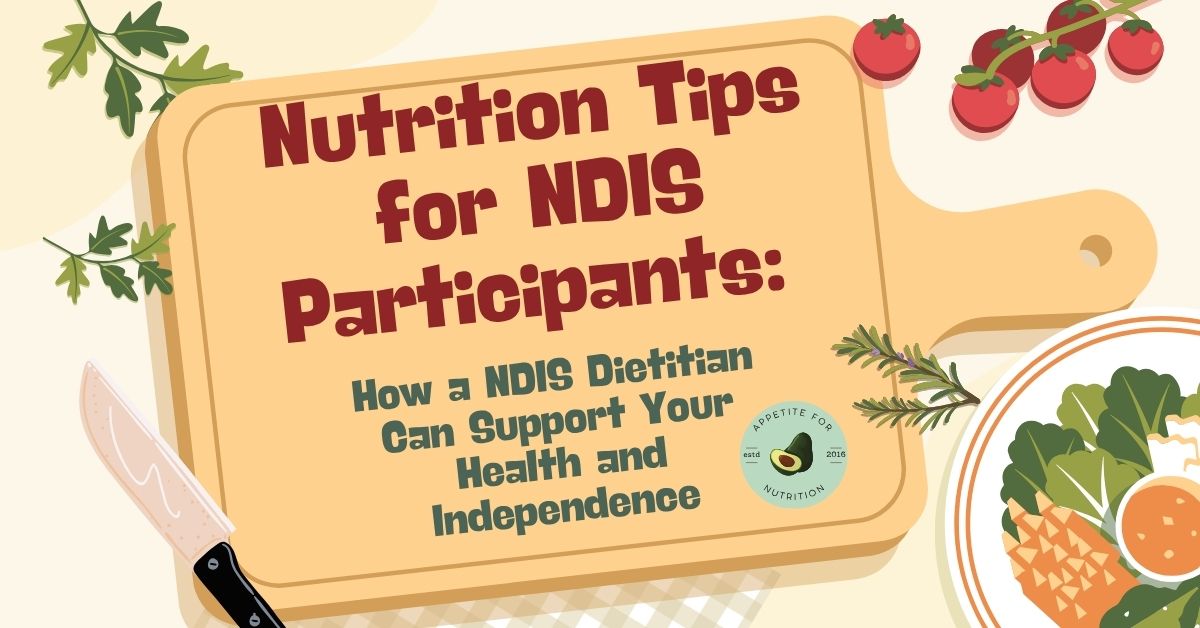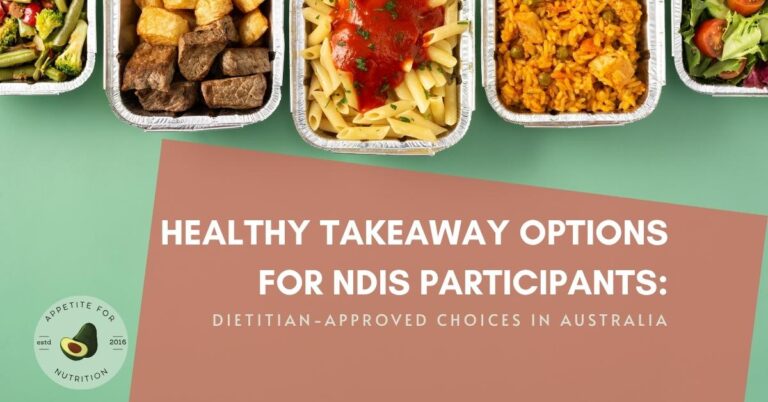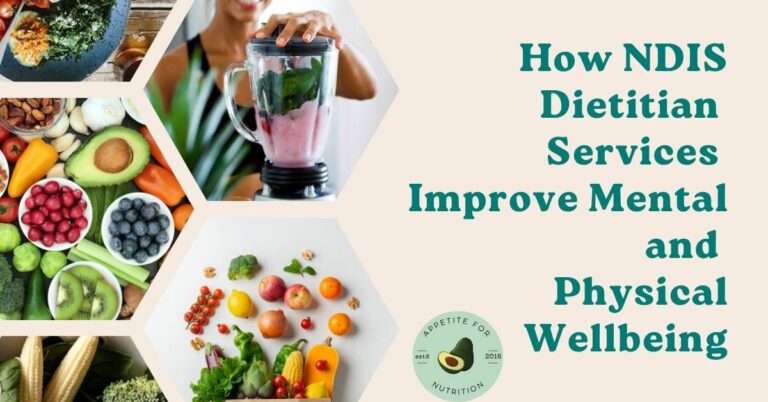
Nutrition Tips for NDIS Participants: How an NDIS Dietitian Can Support Your Health and Independence
A balanced, nourishing diet is essential for everyone — but for people living with a disability, good nutrition can be truly life-changing.
For NDIS participants, access to a qualified NDIS dietitian can improve energy, support mobility, aid recovery, and enhance overall well-being. Whether you’re managing a chronic condition, adjusting to new eating patterns, or overcoming barriers to preparing meals, expert dietitian support can help you live more independently and confidently.
1. Know Your Nutritional Needs
Each NDIS participant has unique needs depending on their age, medical condition, mobility, medications, and lifestyle.
Challenges such as difficulty chewing or swallowing, low appetite, or sensory issues can make eating well more complex — but also more important.
An NDIS dietitian can assess your individual needs and develop a personalised meal plan that works for your goals — whether that’s improving blood-sugar control, increasing energy, supporting gut health, or achieving a healthy weight.
2. Plan Ahead for Balanced Meals
Meal planning helps reduce daily stress and ensures you’re getting the nutrients your body needs to thrive. A balanced plate typically includes:
Protein: Meat, eggs, legumes, tofu — for strength and repair
Whole grains: Brown rice, oats, wholemeal bread — for steady energy
Fruits and vegetables: For essential vitamins, minerals, and fibre
Healthy fats: Avocado, olive oil, and nuts — for heart and brain function
Your NDIS dietitian can help you design simple meal plans, create grocery lists, and find easy, affordable cooking solutions that match your preferences and physical ability.
Learn more: Navigating Portion Sizes: Maintaining Balance in Your Diet at Home
3. Stay Hydrated
Dehydration can cause fatigue, constipation, and confusion — particularly for people with limited mobility.
Aim for 6–8 cups of fluid daily, unless advised otherwise by your doctor.
If drinking water is difficult, your dietitian can recommend creative options like soups, smoothies, herbal teas, or high-water fruits to keep hydration levels up.
4. Overcome Eating Challenges
Some participants experience eating disorders, food aversions, or difficulties related to sensory processing.
An eating disorder dietitian can work with you — alongside psychologists or speech therapists — to help rebuild a positive relationship with food.
Through the NDIS, you can access coordinated support to manage ARFID, disordered eating, or chronic restrictive habits with compassion and evidence-based care.
5. Use Assistive Equipment and Support Workers
If cooking or food preparation feels physically challenging, adaptive kitchen tools can promote independence and safety. These include:
Non-slip mats and adaptive utensils
One-hand cutting boards
Easy-grip containers and lightweight cookware
Your NDIS-funded support worker can also assist with shopping, meal preparation, and reminders to eat — especially when they work in collaboration with your dietitian’s care plan.
6. Develop a Consistent Routine
A structured eating routine helps regulate energy, mood, and digestion.
Your NDIS dietitian can help you create a daily eating schedule that includes:
Regular meal and snack times
Reminders and routine planning
Meal delivery or pre-prepared options when needed
For individuals managing complex health or eating challenges, a predictable routine is essential for stability and recovery.
Learn more: Healthy Snacks on the Go: Dietitian Top Picks from Australian Supermarkets
Wrapping Up
Healthy eating is one of the most effective ways to enhance independence and quality of life for NDIS participants.
Working with a NDIS dietitian in Australian cities including Melbourne Bendigo Shepparton Gold Coast Brisbane Albury-Wodonga and Bendigo, ensures your nutrition plan is safe, practical, and tailored to your health goals.
If you’re ready to get started, speak with your Support Coordinator or Plan Manager about including dietitian services in your NDIS plan — or contact our NDIS dietitians directly to take your next step toward better health and confidence.
This blog was last updated October 2025.
Frequency Asked Questions
Find quick answers to common questions about our dietitian services, NDIS support, Telehealth appointments, and booking process.
Yes. If your disability affects your ability to eat, cook, or manage your nutrition, dietitian services can usually be funded under Improved Health and Wellbeing or Improved Daily Living.
Yes — they provide evidence-based guidance for managing chronic conditions like diabetes, high cholesterol, gut issues, and weight management safely within your plan.
An NDIS-registered dietitian is formally registered with the National Disability Insurance Scheme (NDIS) and understands the functional, physical, and behavioural challenges that can affect eating, meal preparation, and nutrition management.
They can tailor strategies to your specific needs while working within your approved NDIS funding categories, helping you achieve your goals safely and effectively.
Absolutely. Telehealth consultations make it easy to access support remotely — ideal if mobility, transport, or location is a barrier.
Speak to your Support Coordinator or contact us directly to book an initial consultation. We’ll help you develop a clear, achievable plan that aligns with your NDIS goals and lifestyle.
We accept NDIS (self-managed, plan-managed, and NDIA-managed) clients, as well as private, Medicare, and private health insurance appointments.



